Tooth Extractions – Glenpool, OK
Smooth, Precise Tooth Removals
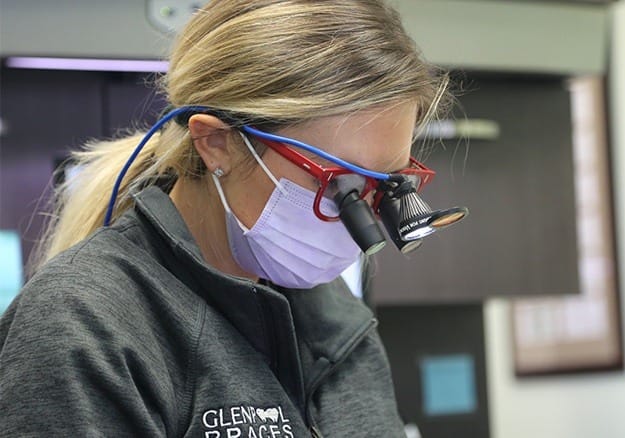
There comes a time for many patients during their oral health journey when common restorative dentistry treatments are no longer helpful and tooth extraction is inevitable. It’s never a fun experience to lose your natural teeth – in fact, the thought of it can be downright depressing. Despite your hesitation, though, you shouldn’t delay treatment by any means. If left untreated, the infection can spread from the affected tooth or teeth to other healthy teeth and cause even more serious problems down the road. Your affected tooth could also be holding up important treatment or procedures at our dental office or hinder the overall functionality of your mouth.
Whatever the case is, Drs. Mohanna and Georgy are here to make tooth extractions in our Glenpool, OK dental office as painless and simple as possible with their precise, effective care that puts your comfort first. At our Glenpool-based dental office, we’re committed to giving you every reason to smile.
Why Choose 918 Dentist of Glenpool for Tooth Extractions?
- A Dentist Skilled in Performing Oral Surgery
- High-Quality Implants and Bridges to Fill the Gap
- Prevent Decay from Spreading
Reasons for Tooth Extractions
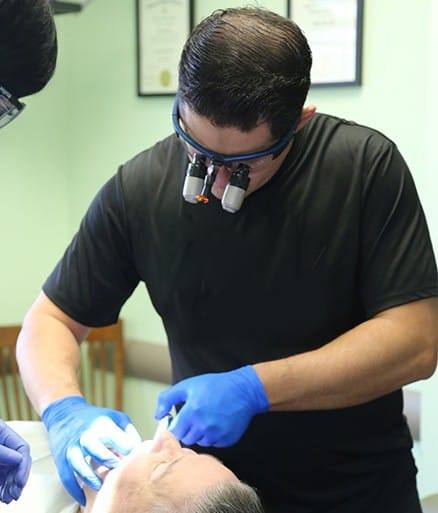
Here are some common scenarios where tooth extraction may be necessary:
- A severely decayed tooth.
- A broken tooth that can’t be treated with a dental crown.
- Preparation for orthodontic work.
- Impacted teeth, such as wisdom teeth.
What are the Types of Tooth Extraction?
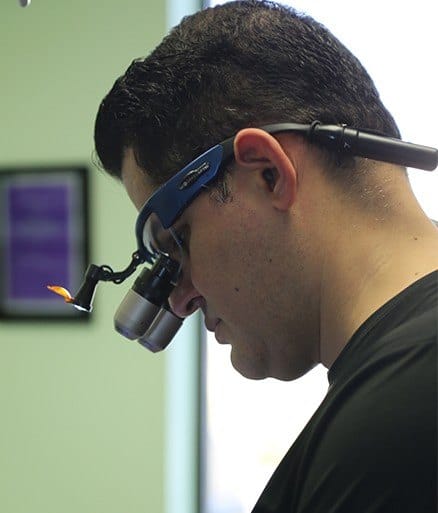
Throughout the extraction process, our expert staff will do everything they can to help make your experience as comfortable, calm, and smooth as possible. Here are the kinds of tooth extraction we can help with.
Wisdom Tooth Extraction
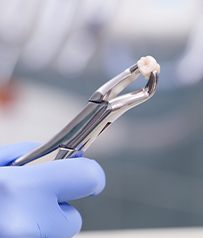
In most of the cases we see, Dr. Mohanna’s goal is to help patients maintain all of their natural, healthy teeth for life. However, the late arrival of the third molars (also known as wisdom teeth) can often lead to overcrowding, impaction, infection, and other serious problems that can spread through your entire smile. If not taken care of properly and in a timely manner, serious oral health problems can occur. That’s why our team at 918 Dentist of Glenpool may recommend having them removed early on.
Multiple Tooth Extractions

Although we do our best to avoid these situations, in some cases, more than one tooth needs to be removed in one procedure. Often, this happens as a result of untreated advanced gum disease, multiple wisdom teeth, or a severe dental injury. Whatever the case may be, you can rest assured that our team will guide you through the process and will treat you with gentle compassion.
Tooth Extraction Site Preservation

Even in the act of extracting one or more teeth, we can plan for your potential tooth replacement by preserving the extraction site. That way, you can get a dental implant down the road much more easily, helping you return to full oral health.
The Tooth Extraction Process
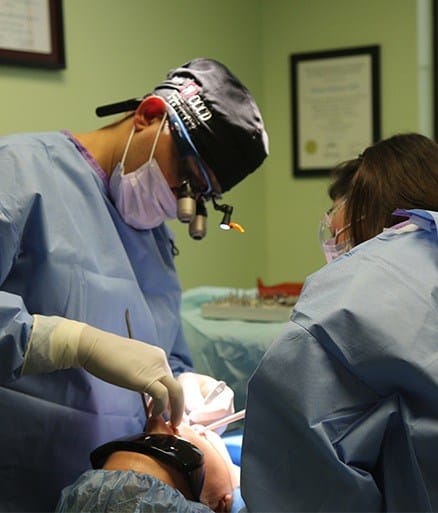
When undergoing an extraction, we’ll be sure to first numb the area where we’ll be removing the tooth or teeth. In addition, we can provide sedation dentistry for you if you feel uncomfortable or afraid of undergoing the procedure. We’ll perform the extraction as quickly as possible; stitches might be required afterwards. After a brief recovery period, you’ll be back in tip-top shape. Then, we can discuss the variety of options we’re able to offer you that can replace your teeth and rejuvenate your smile. We can fit you for dental implants, bridges, full or partial dentures – whatever service fits you and your unique needs best. We will be happy to thoroughly discuss the benefits of each and help you to make a well-informed choice that will enhance the quality of your life.
What Should I Do for Post-Operative Care?
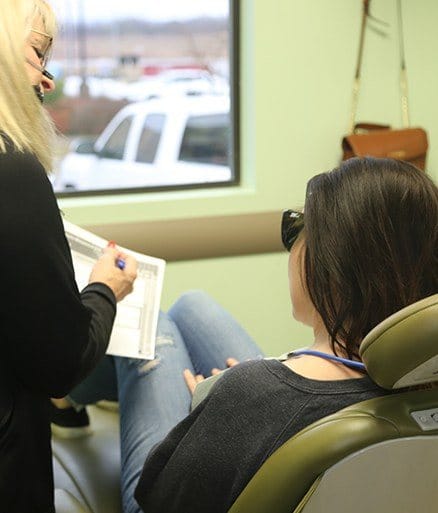
Although having a tooth extracted is minor surgery, it is still surgery, nonetheless. That means that you need to take it easy for a few days following the procedure. To help you heal, you need to follow our specific instructions, but here are some general tips for post-operative care:
- Keep gauze on the site for a few hours afterward, replacing it as necessary.
- Allow a clot to form on the extraction site to protect it from bacteria.
- Refrain from strenuous activity for at least 48 hours.
- Eat soft foods, steadily working back up to a normal diet over the course of a week or so.
- Do not use a straw for at least a few days to avoid the clot from getting dislodged and causing an infection called dry socket.
- Rinse the site gently with water. You can brush your teeth, but avoid the extraction site.
- Call our Glenpool dental office if you experience swelling beyond two days after your extraction, fever, or increasing pain.
Don’t let the thought of tooth extraction keep you from living your life the way you want to – instead, consider it an opportunity to improve your oral health and rebuild your smile from scratch, giving you the gorgeous look you’ve always dreamed of. Contact our Glenpool dental office today to schedule an appointment with our team. We’ll be happy to provide you with effective and comfortable care that puts your desires first every single time.
Understanding the Cost of Tooth Extractions

There are many unique variables that our dental team must consider before determining the cost of tooth extraction in Glenpool. Your case is likely to be vastly different from another patient’s, which is why a scheduled appointment is necessary. During this visit, we’ll go over the details of your treatment as well as how you can minimize your out-of-pocket expenses and stay within your budget while improving your smile.
Factors That Can Affect Tooth Extraction Cost
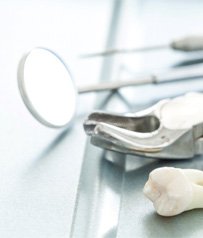
Certain factors are considered when it comes to determining how much you can expect to pay for your tooth extraction. These include:
- The location of the tooth
- The type of tooth that needs to be extracted
- The type of procedure that must be performed (simple or surgical)
- The number of teeth you will need to have removed
- Additional procedures required after undergoing tooth removal
- The type of prosthetic you will need
Of course, the removal of a tooth is not the end. We must identify how best to replace it once the surgical area is healed. Unless you’re having a wisdom tooth extracted, all other teeth must be replaced to prevent jawbone deterioration and further tooth loss. Some of the most popular options for tooth replacement include a dental bridge, denture, or dental implant.
If necessary, we may need to perform a bone graft if your jawbone lacks enough density to adequately support your prosthetics.
Does Dental Insurance Cover Tooth Extractions?

Most dental insurance companies do offer coverage for tooth extractions. Depending on whether you’ve met your deductible and how much of your existing annual maximum funds remain, there is the potential to receive up to 50% coverage for your tooth removal. Our team will review your plan and file any necessary claims to ensure you get the most out of your dental benefits.
Other Options for Making Tooth Extractions Affordable

For those who are uninsured and need assistance paying for this type of procedure, our emergency dentist in Glenpool at 918 Dentist is pleased to offer alternative options, such as:
- Flexible financing through CareCredit . By enrolling in a low- or no-interest payment plan, you can spread out the cost of your procedure into manageable monthly installments.
- 918 Dentist Loyalty Plan , which is an in-house program available to uninsured patients. By paying one, low annual fee, you’ll receive access to preventive services as well as discounts on other available treatments.
Tooth Extraction FAQs
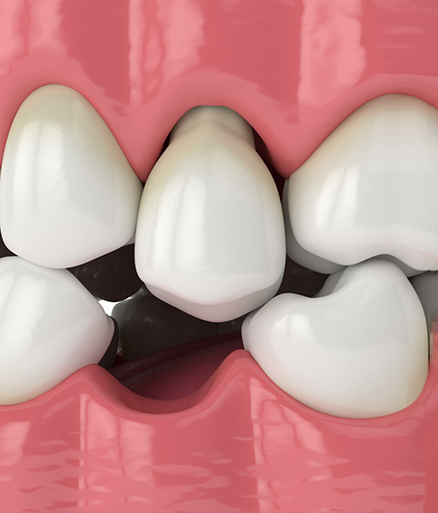
If you ever need to have a tooth extracted, our compassionate team is ready to serve as your dentist in Glenpool. Of course, you may want to learn more about the road ahead before you schedule an appointment. To help you gather information, we have put together a short list of some of the most frequently asked questions about tooth extractions. If you do not see your specific questions address, give us a call so we can personally assist you. We look forward to speaking with you!
Does Getting a Tooth Extracted Hurt?
One of the first things we will do during your appointment is numb your mouth. The numbing agent prevents you from feeling any pain, but you may still feel some pressure while we are working to remove your tooth. If you are not easily numbed or there are other circumstances that make dental treatments extra-uncomfortable for you, we may administer sedation.
After your procedure, some soreness and swelling are to be expected. You can increase your chances of a smooth recovery if you follow our post-op instructions as closely as possible. If you experience any severe or prolonged pain following your appointment, be sure to give us a call so we can help you address the problem.
Is There an Alternative to a Tooth Extraction?
In some cases, root canal therapy can preserve a badly damaged tooth and prevent the need for an extraction. However, keep in mind that we typically recommend extraction only as a last resort; if we advise it in your case, it is unlikely that root canal therapy or any other treatment would provide satisfactory results.
It is understandable if you dislike the idea of having a new gap in your smile. Fortunately, there are sturdy, natural-looking, and long-lasting tooth replacement options available. For example, you may qualify for a dental implant or fixed bridge.
What Is the Difference Between Tooth Extractions and Wisdom Tooth Surgery?
Wisdom tooth surgery is actually a special type of tooth extraction. Normal extractions involve gripping the tooth, gently breaking the ligaments that keep it in place, and removing it from the mouth. Removing wisdom teeth is more complex because they are often fully or partially trapped beneath the gumline. We may have to make incisions in the gums or even break a tooth into pieces in order to remove it.
What Risks Are Involved with Tooth Extractions?
Tooth extractions in Glenpool are generally quite safe. However, there is no such thing as a completely risk-free dental procedure. In rare cases, infections develop that can cause swelling, discomfort, and even a fever.
In other instances, a complication known as dry socket occurs. It happens when the blood clot at an extraction site is prematurely dislodged or fails to form in the first place.
Following post-op instructions can greatly reduce your risk of complications and contribute to a smooth recovery.
I Need a Checkup & Cleaning I Have a Cavity or Broken Tooth I Need a Dentist for My Child I Want a Straighter Smile I am Unhappy with My Smile I am in Pain & Need Help I am Concerned About Bleeding Gums I am Missing One or More Teeth I am Scared of the Dentist I am Concerned about Sleep Apnea View Our Services
